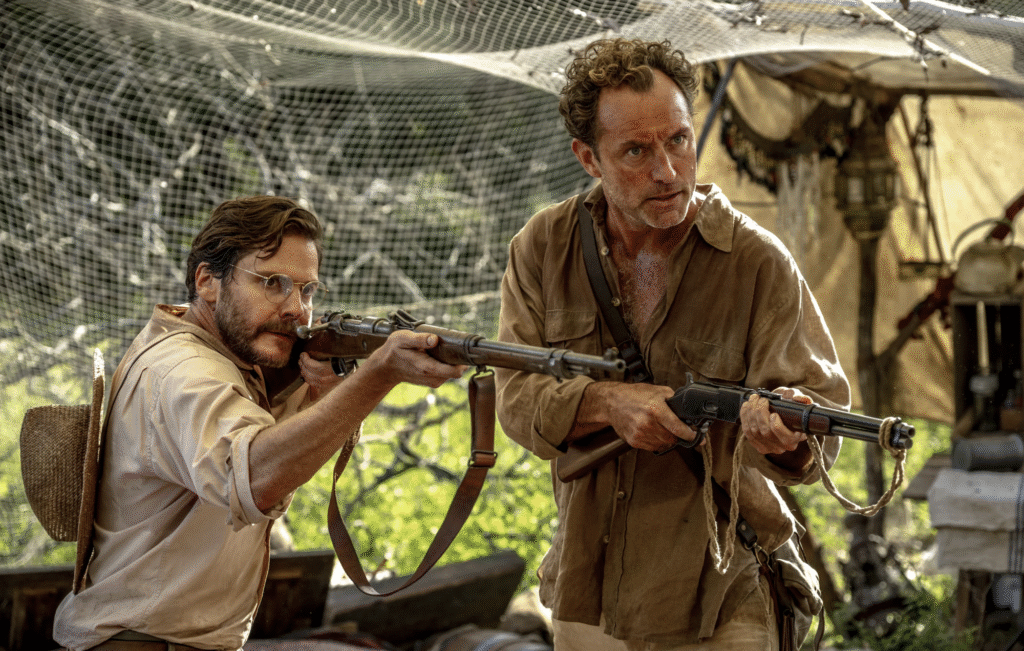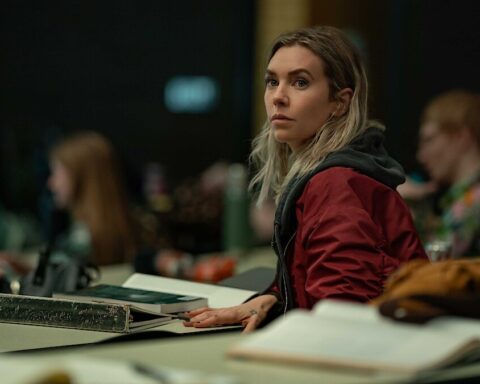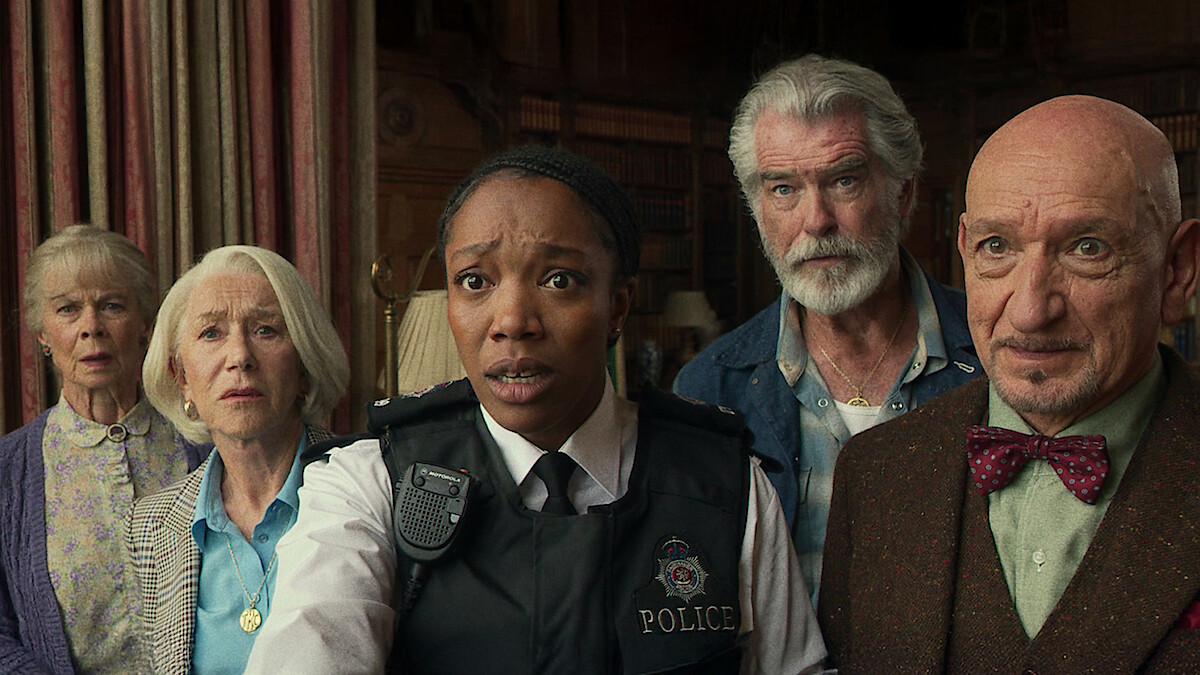The first thing that caught my attention was the inspired casting of the popular current-generation trio of actresses, including Vanessa Kirby, Sydney Sweeney, and Ana de Armas, in Eden. The idea of seeing these three actresses living off the grid on a remote island with a story soaked in the web of deception, betrayal and the dark side of human nature sounds intriguing. And more so with Ron Howard calling the shots for such a movie that is bleak and pessimistic, marking a surprising change of pace for the veteran filmmaker.
Interestingly, the story is actually based on a true story, which takes place post-World War I recession in 1929. We learn that the global economy saw the rise of fascism, and people became desperate, looking for a way out. The latter is especially true as the movie zeroes in on Dr. Friedrich Ritter (Jude Law) and his wife Dora Strauch (Vanessa Kirby), a German couple who choose to flee their native country in favor of settling down on the isle of Floreana at the Galapagos Archipelago. They have since lived a peaceful life, with Ritter spending his days working on his manifesto through a series of letters. A new philosophy that he believes “will save mankind from itself.”
With the help of a passing ship, Ritter’s letters have gained traction around the world. People have become more interested in learning the way of life that Ritter and Dora inhabited the island. Soon, another German couple, Heinz Wittmer (Daniel Brühl) and Margret (Sydney Sweeney), along with their son (Jonathan Tittel), who suffers from tuberculosis, arrive on the island. Their arrival doesn’t sit well with Ritter and Dora at first, but Heinz and Margret prove to be independent enough without causing them trouble. The Wittmers’ resourcefulness in building their own home from scratch. And despite having to make do with a water shortage, they manage to cope with their minimalistic lifestyle so far.
The thing is, Ritter and Dora reluctantly accepting the unwanted arrival of the Wittmers are the least of their concerns. What soon bothers them the most is the next visitors: Eloise Bosquet de Wagner Wehrhorn (Ana de Armas), a baroness who arrives like a queen with her male servants, Robert (Toby Wallace) and Rudy (Felix Kammerer). Unlike the Ritters and Wittmers, her plan on the island threatens to ruin everything they have built their lives up to this point. And that is, building a tourist-friendly hotel.

The introduction of de Armas’ Eloise brings the movie’s otherwise sinister undertones a dash of high-camp nature, resulting in a scenery-chewing performance where she nearly steals the show from everyone. Her dominant, yet narcissistic and flamboyant personality contrasts well with Kirby’s no-nonsense Dora and Sweeney’s down-to-earth Margret. Eloise’s presence on the island leads to some of the best scenes in Eden, namely the one where she only insists on eating canned foods, forcing her servants to sneak into the Wittmers’ home to steal as many as they can carry. The scene later extends to Margret, who is heavily pregnant at the time, faces a pack of savage dogs, and even culminates in an unassisted, graphic childbirth. Then, there’s the elaborate scene where Eloise invites everyone to her place for a lunch gathering. Let’s just say things do not end on a sweet note.
I admit that Eden takes some time to find its proper footing, while Howard’s ambition to blend the dark and sometimes lightweight tones isn’t entirely successful. The pace tends to be erratic in places, and Howard’s reunion with Daniel Brühl after their notable collaboration in one of the director’s best works, Rush, is somewhat underutilized.
Brühl’s co-star, Sweeney, who plays the wife, fares better by comparison. Her character is first depicted as a timid and mild-mannered individual trying her best to stay out of trouble, only for the forced circumstances to drive her into a survival mode later in the movie. She is equally notable for shedding her usual sexy appearance in favor of a role that focuses more on her acting chops, and for that, she pulls off admirably, proving her range as an actress.
Kirby, who excelled in The Fantastic Four: First Steps and the otherwise lackluster Night Always Comes, hits the third jackpot with another commendable performance that continues to prove why she is one of the sought-after actresses of her generation. Her icy demeanor, despite her character’s multiple sclerosis condition, gradually exposes the true colors of Kirby’s Dora, particularly during the second half, when things start to fall apart.
Finally, there’s Jude Law, whose lead performance as Dr. Friedrich Ritter combines his rugged charm and subtle acting to engaging results, leading to another winning streak for the actor after last year’s The Order. Eden also benefits from Mathias Herndl’s atmospheric cinematography, capturing the visual contrast between the idyllic and macabre beauty of the remote island of Floreana, where it was reportedly partially filmed on the Galapagos location, but the primary shooting takes place on the Gold Coast, Australia.






